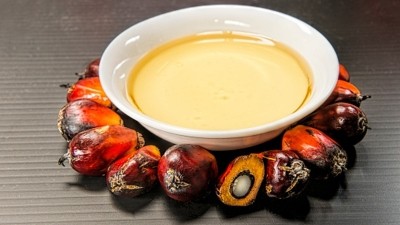Deforestation unrest: EU policy implementation hangs in the balance after industry pushback

The EUDR has long been facing major opposition and protests from producer nations of commodities such as palm oil and cocoa.
And now EU Commission (EC) is facing mounting challenges from within Europe itself.
On March 28 this year, an industry-wide cross-commodity letter was addressed to EC President of the Council for Environment and Minister for the Climate, the Environment, Sustainable Development and the Green Deal of Belgium Zakia Khattabi, calling for ‘urgent clarifications and workable solutions’ on EUDR implementation.
This was signed by a coalition of more than 20 European industry organisations spanning many areas of trade, including representatives on food trade in cereals, oils, rice, livestock, meat and more – all highlighting concerns over the upcoming enforcement in December 2024.
“Considering the significant adjustments that are needed from suppliers, operators and traders, we would like to express serious concerns regarding the pace of preparation of EUDR-related legislative acts, the mandatory systems and the guidance and clarifications required for implementation,” the coalition said in the letter, which FoodNavigator-Asia has viewed.
“Operators and traders are working hard to prepare their supply chains and adapt their systems and due diligence processes for compliance with the EUDR [and] try to develop workable solutions compatible with the EUDR provisions.
“However, these efforts are impeded by large gaps in information, lack of appropriate technical solutions and by misconceptions as to the functioning of our complex chains.
“We wish to underline the sense of urgency: the still pending clarifications and missing tools have to be provided by Q2 2024. We cannot adjust our complex supply chains and established business practices and systems with last minute recommendations or discover, under short notice, that [systems] need a complete change for lack of interconnectivity.
“Unless timely and adequate responses are provided, we cannot exclude serious disruptions in all commodity supply chains, with potential unintended negative effects on the supply of essential goods for the European market [including] food, feed, packaging, hygiene products, bioenergy and more.”
In addition to these concerns, the letter also included a list of over 30 questions pertaining to specific potential disruptive trade scenarios for the EC to address in terms of preventing supply chain disruption and confusion.
As an example, one of the most pertinent questions - which has also been a major one for the producer countries – was as follows: “How can [an operator] ascertain that the due diligence of a relevant product (e.g. soy) contained in the relevant product (e.g. cattle) was exercised in accordance with [EUDR requirements]?”
According to palm oil industry and trade policy expert Khalil Hegarty, many of these questions have long been brought up as major concerns by the producer nations, but received no attention or response from the EC.
“It's worth noting that the concerns of European operators have also been raised by Indonesia and other commodity exporting countries, but generally dismissed out of hand by EU officials and other boosters of the regulation,” he told FoodNavigator-Asia.
“[Given the current situation], this begs the question: if the EU can't provide answers to its own farmers, foresters and industry on a serious regulation that is scheduled to come into force in less than nine months, what hope do exporting countries have?”
Of note also is that the next meeting of the Joint Task Force between Indonesia, Malaysia and the EU discussing the EUDR is tentatively scheduled for September this year – but if industry and supply chain stakeholders have to wait until this time, a mere three months before EUDR implementation, there is little chance of a smooth transition taking place in December 2024.
Governments demanding delay
Alongside the onslaught of queries from industry, agriculture ministers from EU Member States from Austria to Germany have also been surfacing increasing opposition to the EUDR, calling for postponement of its implementation, citing concerns about the realities that would accompany this for many agri-food supply chains.
This call came from 20 of the EU’s 27 member states, and was initially surfaced by Austrian Minister of Agriculture Norbert Totschnig at Brussels.
"We now urge the Commission for a temporary suspension of the regulation allowing for a feasible implementation accompanied by a revision of the regulation," Totschnig said via a formal statement.
It remains to be seen whether the EC will be taking these concerns from industry and member states into serious consideration, but initial reactions suggest little optimism, with officials largely linking these to political factors instead of practical concerns.
EU environment commissioner Virginijus Sinkevicius questioned why countries were raising such concerns a few months before EU Parliament elections (coming up in June 2024) even though lengthy negotiations were undertaken in the development of the policy.
He stated that the EC would ‘listen to the arguments, but I honestly don’t see any issues’, according to Reuters.



















